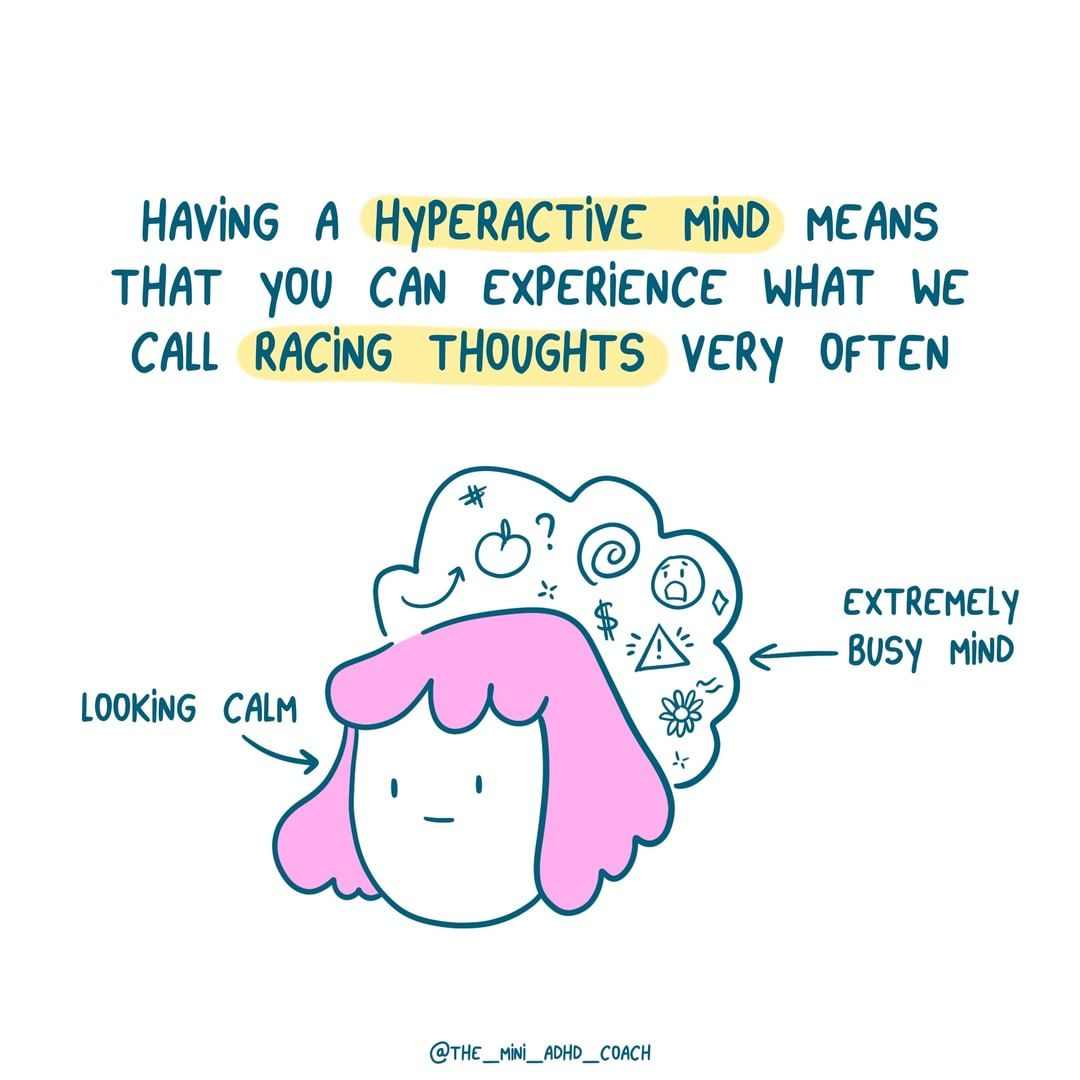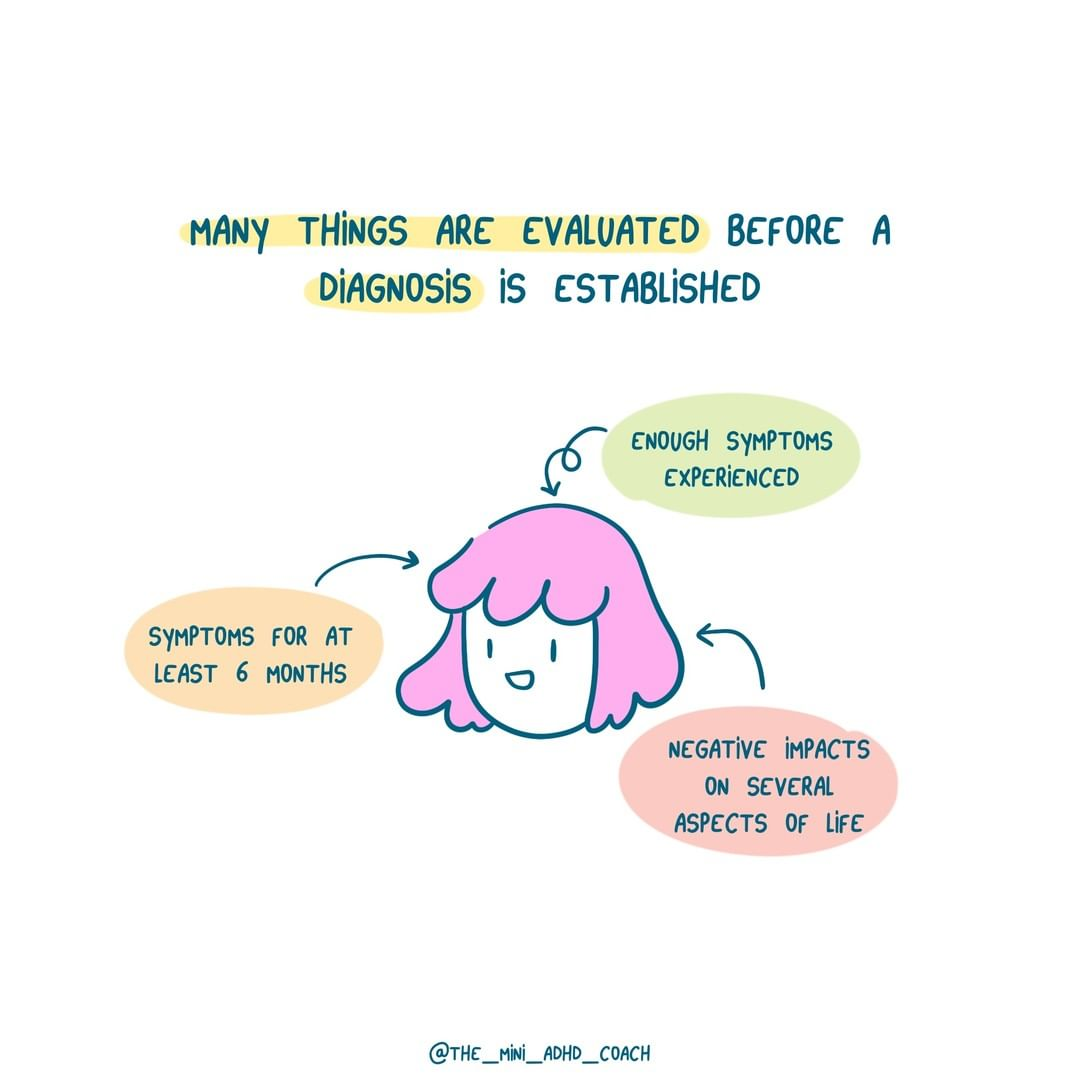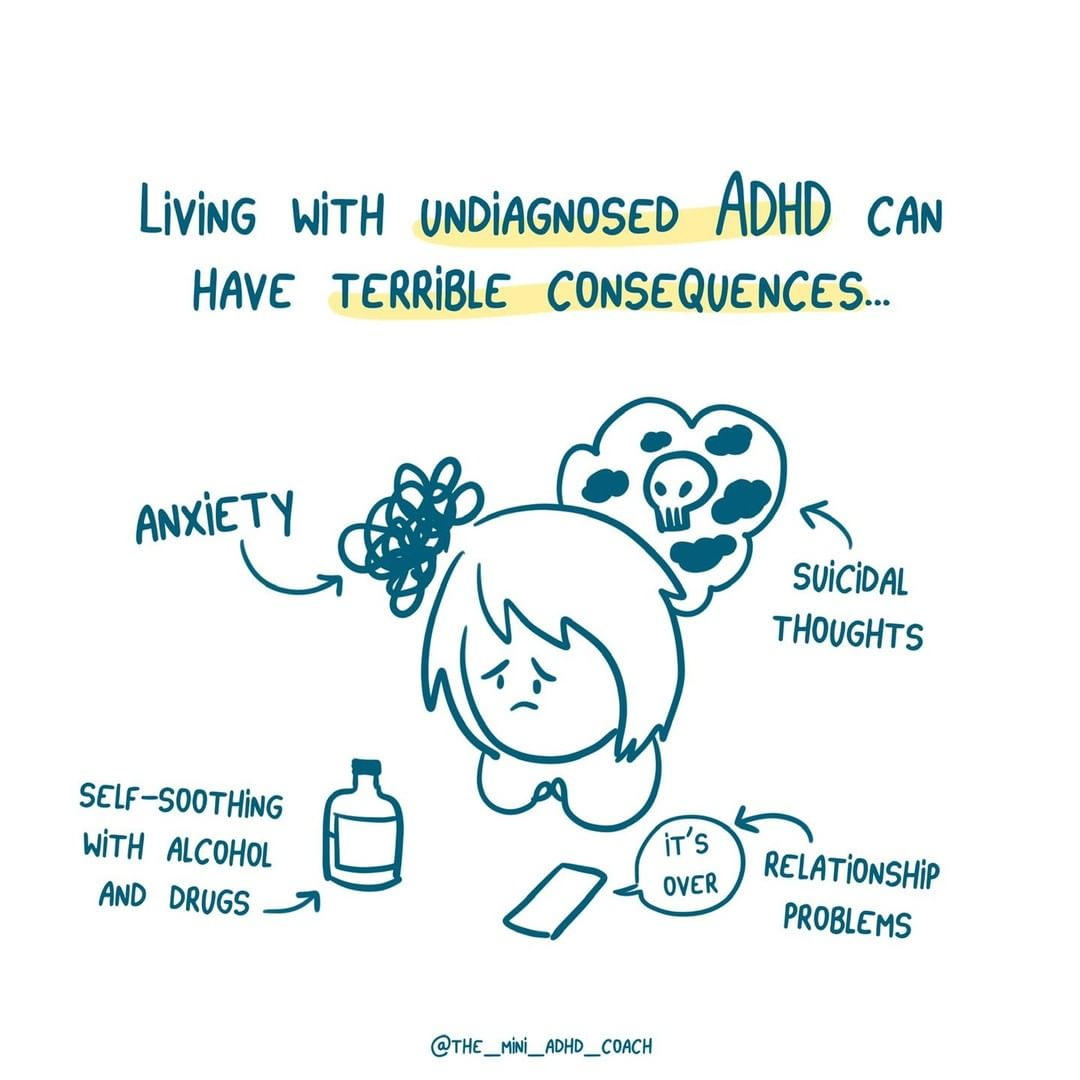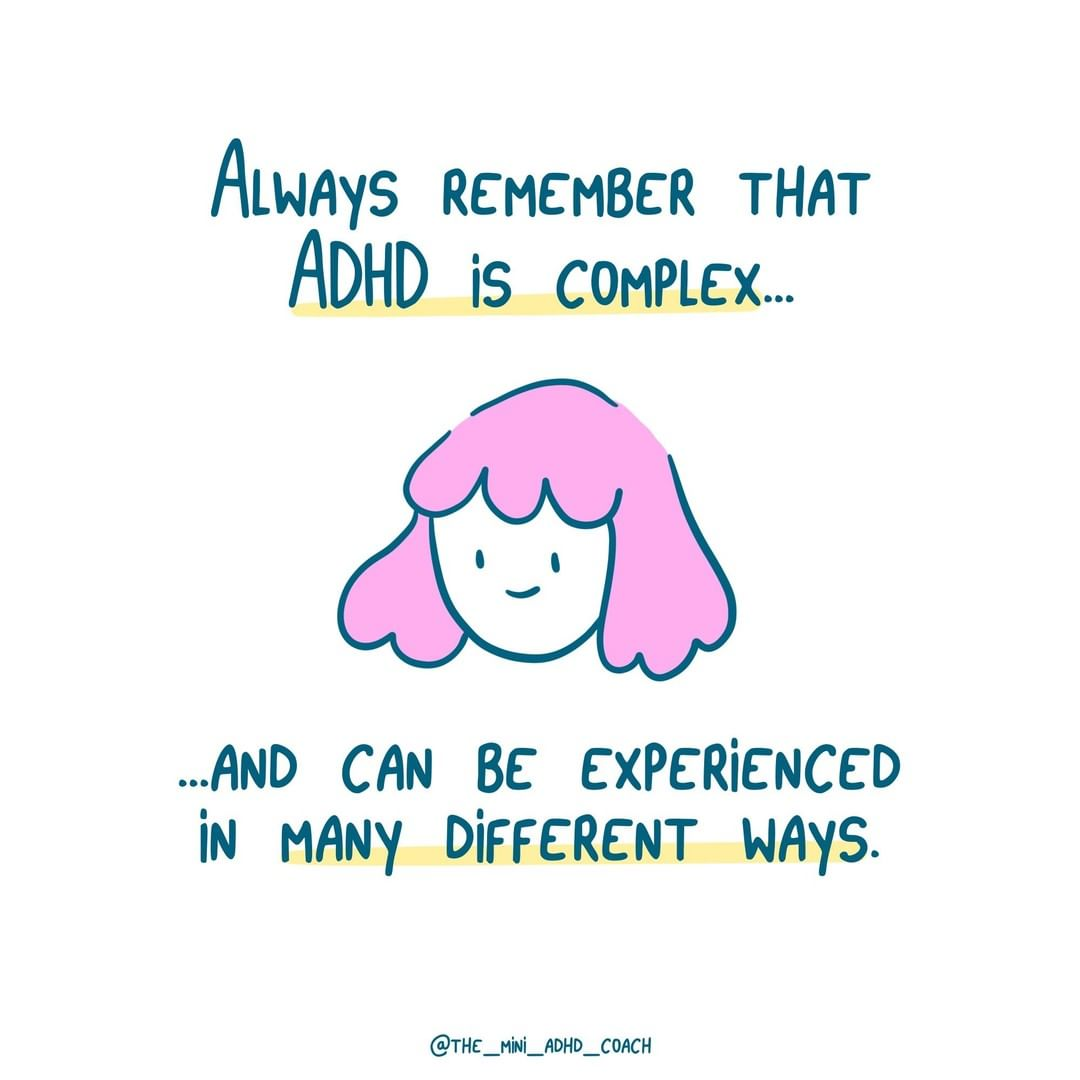Understanding ADHD: Separating Fact from Fiction
Think only kids have ADHD, or that it’s just down to poor parenting? Think again. This article dives into the depths of Attention Deficit Hyperactivity Disorder, challenging some of the myths about ADHD and shedding light on what it truly means to live with this neurodivergent condition.
We discuss:
- Debunking Common Misconceptions About ADHD Causes and Treatments: Correcting widespread misconceptions about diagnosing and treating ADHD.
- Hyperfocus vs. Inability to Concentrate: How interest-driven focus challenges the stereotype of constant distraction.
- Impulsivity and Decision-Making: Impulsive behavior goes beyond the thrill-seeking stereotype.
- The Many Faces of Hyperactivity: Not all individuals with ADHD are visibly hyperactive; it can vary across age and presentation.
- Debunking the Overdiagnosis Myth: Why doctors aren't freely handing out ADHD diagnoses or prescribing ADHD medications without a rigorous examination of symptoms.
Are you curious to learn more about the realities of ADHD and how they differ from common stereotypes? Keep reading to uncover the truth, backed by research and personal experiences. ⬇️
ADHD Myths Around How ADHD Is Caused & Managed
Myth 1: Only Boys Get ADHD
- Reality: ADHD affects both boys and girls, although it may present differently. While boys are often diagnosed due to hyperactive behavior, girls may exhibit more inattentive symptoms such as difficulty focusing, leading to underdiagnosis. Brain imaging studies and research by the American Psychiatric Association show that ADHD is a neurodevelopmental disorder not limited to one gender.
Myth 2: ADHD is Caused by Bad Parenting or Video Game Addiction
- Reality: ADHD is a medical condition with genetic and neurological origins and is not related to parenting styles or using technology. The Diagnostic and Statistical Manual of Mental Disorders (DSM) outlines ADHD as a complex medical disorder. Environmental factors like substance abuse during pregnancy may be related to a higher risk of developing ADHD, but they are not direct causes.
Myth 3: ADHD Can Be Cured Naturally
- Reality: While certain lifestyle changes can help manage ADHD symptoms, there is no cure for this chronic condition. Treatment options often include a combination of taking medication, therapy, and behavioral interventions. Relying solely on unproven natural remedies can perpetuate stigma and delay support. There is currently little research that suggests you can cure ADHD with natural remedies. However, many people with ADHD manage their condition with a combination of traditional and non-traditional treatments.
‘People With ADHD Can't Focus On Anything For Too Long’
A common stereotype about people with ADHD is that they cannot focus long enough to read a book or complete work tasks. This perception often leads to misunderstandings about their capabilities and work ethic.
Reality
The reality of ADHD's impact on focusing abilities is much more nuanced than this. Research shows that adults and kids with ADHD can experience periods of intense concentration known as 'hyperfocus.' This phenomenon occurs when a person becomes deeply engrossed in highly stimulating or interesting activities. During periods of hyperfocus, an individual may become so absorbed in a task that they become oblivious to the world around them. This intense concentration can be so profound that they might lose track of time and neglect basic needs like eating or sleeping.

Hyperfocus is a double-edged sword; it can be a significant advantage when channeled into productive activities, such as work projects or creative endeavors. However, it can also lead to challenges, particularly when it causes neglect of other important tasks or responsibilities. In fact, research indicates that hyperfocus is associated with addictive behavior in adults with ADHD.
It's important to understand that while trouble concentrating on unstimulating tasks is a common symptom of ADHD, the ability to focus intensely on stimulating tasks is also a part of the experience.
It’s crucial to recognize that these challenges are not about a lack of willpower or effort. Instead, they relate to how the ADHD brain processes information and stimuli. With this information, we can reshape our approach to supporting individuals with ADHD, especially in academic and workplace settings, where we can ask for accommodations to allow us to harness the unique way we focus and find productivity. ✅
Take our fun online quiz to visualize your ADHD traits and learn more about your brain!
TAKE THE FREE TEST
‘People With ADHD Are Always Up For An Adventure’
There's a prevalent stereotype that paints individuals with ADHD as always being ready for fun and adventure, driven by a constant need for excitement and stimulation.

Reality
While it's true that many people with ADHD exhibit symptoms related to impulsive behaviors, which can manifest as a zest for adventure and spontaneity, this is just one aspect of a complex trait. 👇
Impulsivity in ADHD is not just about seeking thrills; it encompasses a range of behaviors and decisions that are made quickly without considering the potential consequences. Impulsivity can lead to challenges in everyday life; for instance, it might result in making hasty decisions with financial or social repercussions or saying yes to commitments without fully considering the feasibility or the impact on responsibilities. This aspect of impulsivity reflects the difficulty that many of us with ADHD may have in pausing to think through the implications of our actions.

It's important to note that managing impulsivity effectively is a critical part of living well with ADHD. We often need to intentionally build stability in a way that curbs our impulsivity, possibly with the guidance of a clinical psychologist or therapist. Moreover, we may need medication to manage these impulsive behaviors and help us make positive decisions that keep us stable and well.
Understanding the full spectrum of impulsivity in ADHD – from its contribution to a dynamic and adventurous spirit to the potential challenges it poses – is essential. It's about finding a balance and developing strategies to make thoughtful decisions, considering immediate desires and how decisions might affect us and others in the future.
‘People With ADHD Are Always On The Go’
One of the most common myths around ADHD is that it's synonymous with being physically hyperactive, like the child that can’t sit still at school.
Reality
Hyperactivity often manifests differently in adult ADHD than the typical restlessness seen in children. Over the years, many children with ADHD (especially girls) learn how to mask their hyperactivity, which can present as mental hyperactivity instead. 🧠 This includes symptoms like racing thoughts, talking fast, and an internal sense of restlessness. It's not uncommon for adults with ADHD to experience a whirlwind of ideas and thoughts, making it challenging to focus or relax.

For example, I often feel like I have a motor that never turns off. Even sitting still, my mind is racing a mile a minute. 🤯 I'm always thinking about what I need to do next, which can mean I feel overwhelmed by the future, even when I'm just trying to relax. This mental hyperactivity can be exhausting and is often misunderstood by those who expect my hyperactivity to be visible.
Adults with ADHD may develop coping strategies to manage their hyperactivity, such as engaging in constant mental stimulation or finding physical outlets to channel their energy. For example, I often have to listen to podcasts when trying to go to sleep just to shut my brain off. 😴

It's essential to recognize that hyperactivity in ADHD is not just a childhood issue and that it evolves as individuals age. Understanding this aspect of ADHD can lead to better support and strategies tailored to adults like myself, including therapy and medication management that specifically treat this aspect of the disorder.
'Everybody Has ADHD These Days'
Increasing discussions about ADHD, especially online and on social media, fuel a growing belief that the condition is overdiagnosed, leading to the notion that it's ‘easier than ever to get diagnosed with ADHD.’

Reality
Contrary to this belief, diagnosing ADHD is not a simple process. The diagnosis of ADHD, a recognized psychiatric disorder, requires meeting specific criteria outlined by the Diagnostic and Statistical Manual of Mental Disorders. These criteria include a thorough review of symptoms, which must have been present since childhood, and often involve comprehensive evaluations, sometimes including brain imaging and consultations with clinical psychologists.

It can be expensive, time-consuming, and emotionally exhausting. Moreover, It takes as much effort to diagnose ADHD as any of the other psychiatric disorders, particularly due to the variation in symptoms of ADHD and differences in presentations, such as inattentive vs combined type.
The increase in ADHD diagnoses in recent years is partly due to heightened awareness and more education around the disorder. This awareness has led more people to seek evaluations, especially adults who may have struggled undiagnosed since they were children. 💕It's important to note that this increase in diagnoses is a positive development, as more individuals receive the support they need and deserve.
The misconception that ADHD is easily or overly diagnosed can undermine the real struggles faced by those with the condition. It's vital to acknowledge that while ADHD is more widely recognized now, it remains a valid, significant mental health challenge that requires proper treatment.
Why ADHD Stereotypes Are Harmful
ADHD stereotypes are not only misleading but also deeply harmful. 😒They create significant barriers for people with ADHD to feel comfortable enough to seek support or consider a diagnosis, often leading to delayed or missed opportunities for life-changing interventions. This is particularly true when stereotypes perpetuate the notion that ADHD symptoms are a result of bad parenting, laziness, or lack of discipline rather than recognizing them as aspects of a legitimate psychiatric disorder.
One of the most detrimental effects of these stereotypes is their impact on people's willingness to reach out for help. Many people, including myself, have delayed seeking a diagnosis due to misconceptions surrounding ADHD. These stereotypes paint a picture that doesn't resonate with everyone's experience, especially for those with symptoms of inattentive ADHD, where hyperactivity isn't as prominent. The belief that ADHD only affects boys or children or that it's just about being easily distracted leaves many people struggling in silence, unaware that their challenges could be related to ADHD. 😞

The delay in diagnosis and treatment can have far-reaching consequences. Without proper understanding and management, ADHD can significantly affect school performance, career success, and personal relationships. It can lead to substance abuse, financial problems and poses an increased risk of other mental health problems developing.
When people do seek help later in life, they often look back and realize how different things could have been if they had received support earlier. For me, getting diagnosed at 29 was a turning point. Everything clicked into place, and the realization dawned that so many struggles were not due to personal failings but a neurological condition. 💡
Access to therapy tailored to ADHD, particularly treatments that focus on executive function and working memory, can be transformative. ✨Moreover, if needed, finding the proper medication can significantly improve focus, organization, and overall quality of life.
Addressing and dispelling these harmful stereotypes is vital for providing support for anybody managing symptoms of ADHD. It's about changing the narrative from misconception to a more inclusive and accurate portrayal, highlighting the diversity of experiences among people with ADHD, and empowering more of us to seek a diagnosis and get the help we deserve. 💪

Key Takeaways
- ADHD is often surrounded by common myths that misrepresent the true nature of this psychiatric disorder, affecting everything from how ADHD symptoms should look to when we should or shouldn't use ADHD medications.
- Myth: ADHD is a disorder exclusive to boys, caused by bad parenting or excessive use of video games, and can be cured with natural remedies.some text
- Truth: ADHD is a condition that affects both genders, has genetic and neurological bases as identified by the American Psychiatric Association, and requires comprehensive, evidence-based treatment, including ADHD medication and therapy.
- Truth: ADHD is a condition that affects both genders, has genetic and neurological bases as identified by the American Psychiatric Association, and requires comprehensive, evidence-based treatment, including ADHD medication and therapy.
- Myth: ADHD means a constant battle with distraction.
- Truth: People with ADHD may struggle to follow instructions or focus on tasks that don't interest them, but they can also achieve a state of hyperfocus on stimulating activities.
- Myth: Individuals with ADHD make quick decisions without much thought.
- Truth: Impulsivity can be a symptom of ADHD, but for most people, it doesn't prevent them from understanding their responsibilities. With the right strategies and medication, it's a trait we can healthily manage.
- Myth: Hyperactivity affects only children with ADHD.
- Truth: Adults with ADHD often experience mental hyperactivity, which can appear as being distracted easily and struggling with overthinking and racing thoughts.
- Truth: Adults with ADHD often experience mental hyperactivity, which can appear as being distracted easily and struggling with overthinking and racing thoughts.
- Myth: There are too many adults and kids diagnosed with ADHD
- Truth: Although many myths suggest otherwise, professionals do not diagnose Attention Deficit Hyperactivity Disorder without extensive research and assessments based on clinical criteria.
- Truth: Although many myths suggest otherwise, professionals do not diagnose Attention Deficit Hyperactivity Disorder without extensive research and assessments based on clinical criteria.
When left unchallenged and disproved, ADHD myths lead to stigma, which can delay or deter individuals from seeking an accurate ADHD diagnosis, preventing them from accessing support that could significantly improve their quality of life.
Shattering the myths about ADHD and promoting an accurate understanding is crucial. It's not just about correcting misinformation; it's about recognizing ADHD as a disorder that touches many lives, regardless of age, gender, or ability.
What’s Next?
If you can relate to any of these common myths about ADHD, you’re not alone. Check out these related articles on a range of topics that many people with ADHD struggle with, many of which are based on many of my own experiences. ⬇️
Understanding the Full Spectrum of the ADHD Iceberg
How Does ADHD Affect a Person's Impulse Control?
Visualize and assess 25 ADHD traits and understand how they affect your life.
Learn more-2.png)
Frequently Asked Questions (FAQs)
Is ADHD overdiagnosed?
The debate on ADHD's overdiagnosis is complex. While some experts believe that better awareness has led to more accurate diagnoses, particularly among girls and women, there are concerns about overdiagnosis, especially in cases where behavior might be mistaken for ADHD symptoms. The key is careful, individualized assessment.
What is the main controversy behind ADHD?
The controversy mainly revolves around diagnosis and treatment methods, with a specific focus on the quick prescription of stimulant medications. There's also discussion on the misinterpretation of ADHD's nature, fueled by myths, and how it's recognized differently across genders and ethnic groups. Finding a balance between recognizing genuine ADHD challenges and not over-pathologizing normal behaviors is crucial.
What are some interesting facts about ADHD?
ADHD isn't just a childhood issue; symptoms can persist into adulthood. It's characterized by more than difficulty focusing, including hyperactivity and impulse control issues. Boys are diagnosed more often, though girls, who may display less overt symptoms, risk underdiagnosis. ADHD affects individuals worldwide, debunking the myth of it being a predominantly Western disorder.






